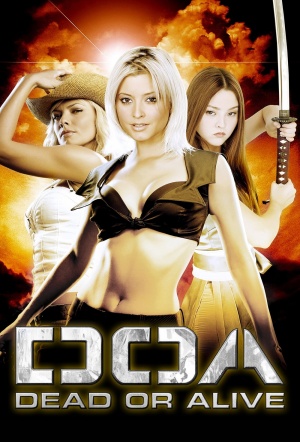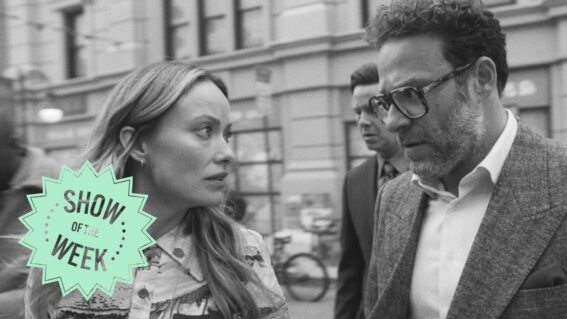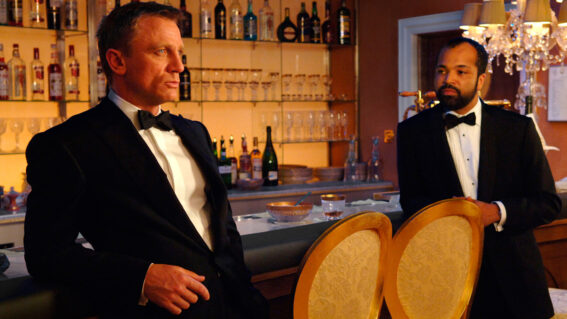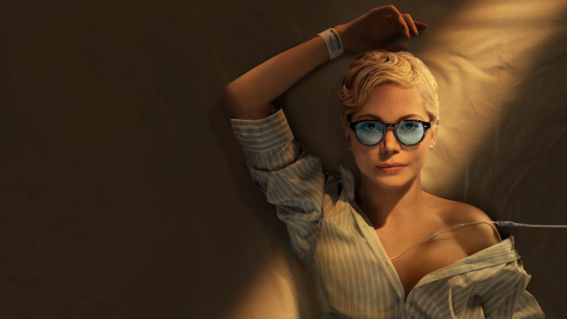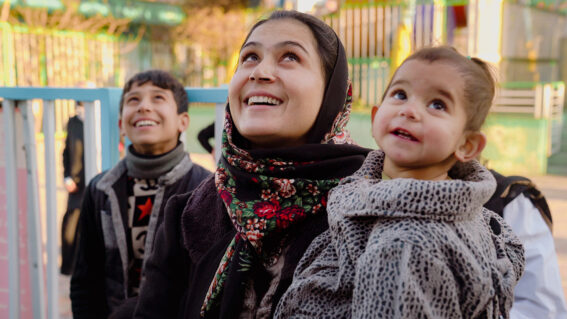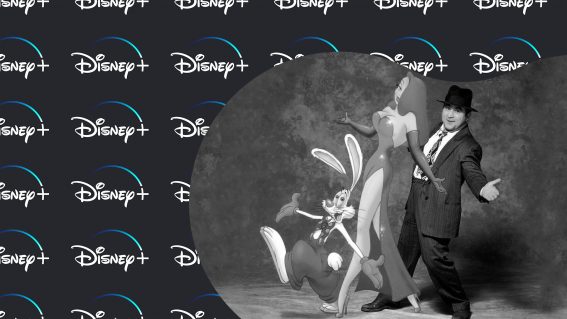D is for DOA: Dead or Alive: sexploitation disguised as a kids’ video game movie
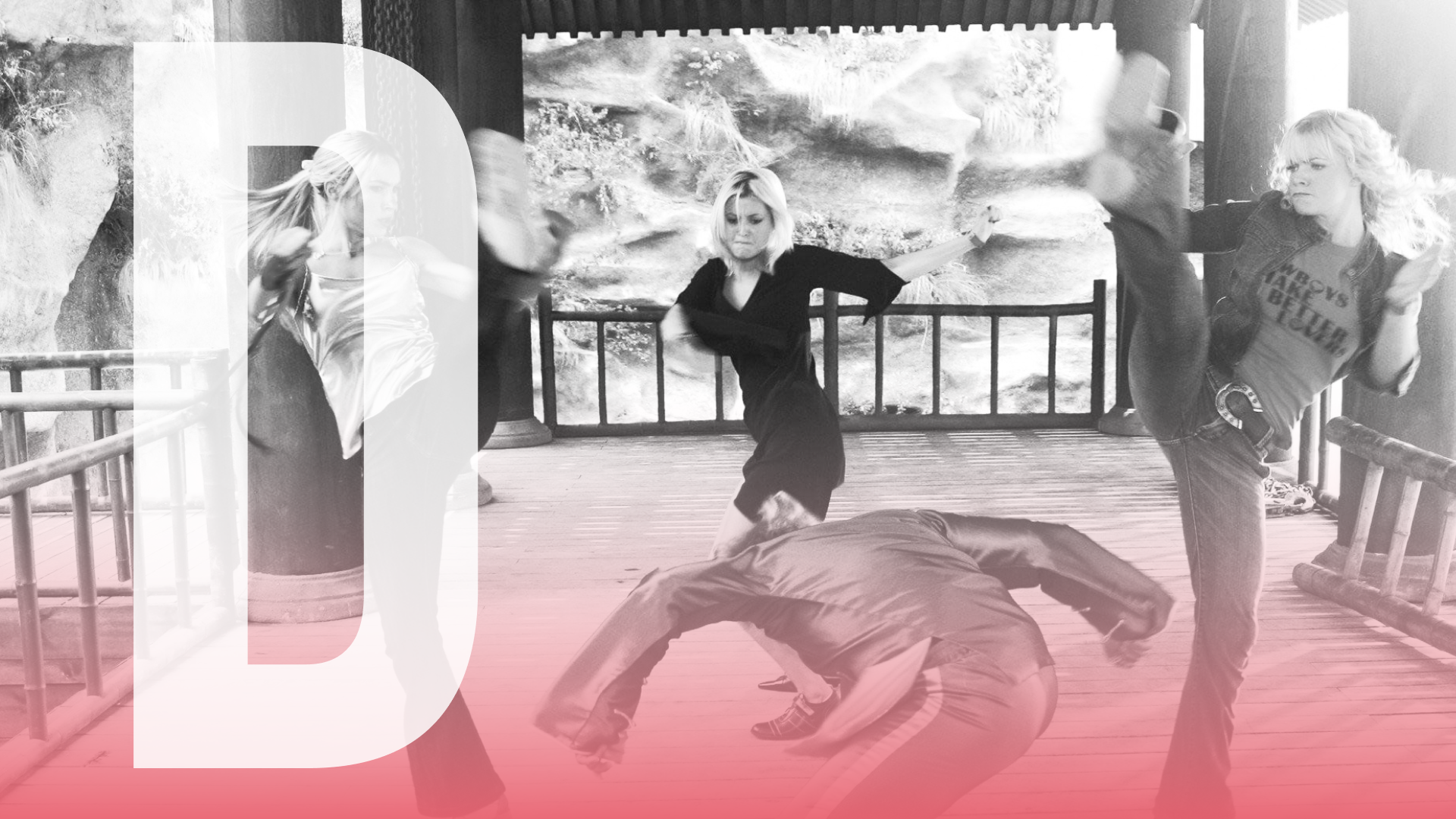
In monthly column The A-to-Z of Trash, bad movie lover Eliza Janssen takes us on an alphabetically-ordered trip through the best bits of the worst films ever. This month, supremely horny video game adaptation DOA: Dead or Alive is indeed dead on arrival. But it’s also heaps of fun, if you’re a bad feminist.
I’m not a gamer by any stretch of the word, but boy do I love to watch Hollywood try to bottle the appeal of video games into films—and fail practically every time. As with Mortal Kombat and Street Fighter, the essential appeal of the Dead or Alive fighting games seems pretty hard to mess up: characters from around the globe are matched together for martial arts combat, in a tournament organised by sinister forces. Simple.
Those characters just happen to be slobber-worthy, barely-dressed female fighters, whose popularity led to spin-off game Dead or Alive Xtreme Beach Volleyball—in which the former rivals set aside their differences to giggle and jiggle in swimsuits. The 3D character models could be zoomed in on from almost any angle by leering players, leading to the game receiving a “Mature” rating.
The game franchise’s 2006 film adaptation, however, was blessed with a mere PG rating in the US…where it was distributed by the Weinsteins. Hmm. The film is written by four dudes, two of whom literally have the surname Gross. It’s a masterclass in objectification, a coproduction between German, American, and English companies who seemingly trapped the thirstiest virgins from each country in a room and adapted their collective wet dreams. But! It passes the Bechdel Test. We’ll get there, but first you’ve gotta meet our trio of Strong Female Characters.
Despite being the first Western production shot in the same stunning Chinese locations as Hero and House of Flying Daggers, DOA’s opening shot is a hilarious cutscene-quality recreation of that same sweeping temple set. Why? Dunno. It’s where we meet a stone-faced Devon Aoki, a ninja princess with Sherlock-level intellect and cunning. “Princess Kasumi, as your brother’s best friend, you must let me help you”, one mook pleads as she sets off on a vengeance mission. “If my brother is really dead”, she reasons, “you are no longer his best friend.” Got ‘im. Dead people can’t have besties!!
Jamie Pressly’s all-American badass Tina is introduced with a cleavage shot as she pulls herself out of the ocean in a stars-and-stripes bikini. Holly Valance’s first scene takes the cake, however: her naked assassin Christie battles bad guys in magical lingerie that flies around a hotel room, landing on her body through the sheer, panicked, telekinetic will of any mums watching in the audience, covering their son’s eyes.
Because DOA: Dead or Alive is certainly a children’s movie, or more specifically, a movie made for pent-up tween boys. The plot is too flimsy, the dialogue too goofy to be appreciated by any adult action aficionado, however much they might try to ditch their brains at the door. These lascivious character intro scenes are needed to welcome our heroines to a battle royale on villain Eric Roberts’ mysterious island, with an ultimate prize of $10 million. Despite their diverse backgrounds in wrestling, master thievery, and ninja royalty (?), our heroes all quickly adopt a distractingly similar combat style. It’s mostly moves that require them to expose their entire crotch to the camera with every kick and leap.
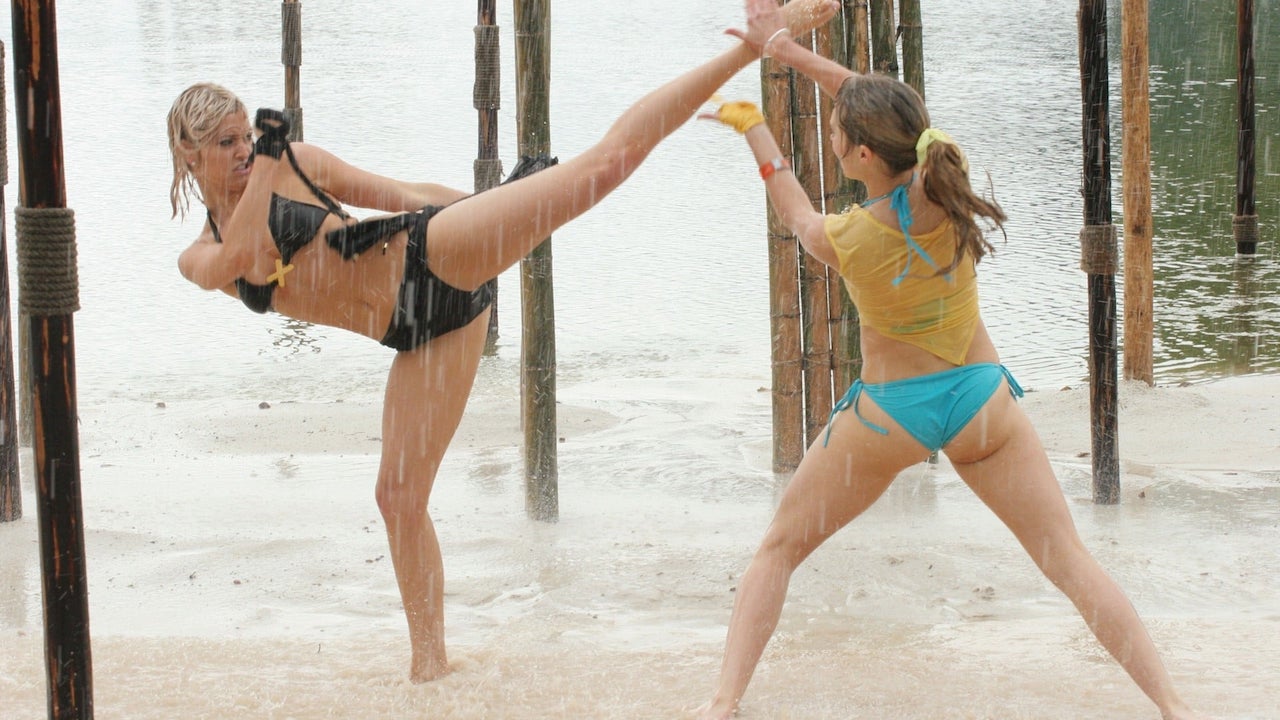
It’s a huge stretch to call 2000’s Charlie’s Angels a feminist masterpiece or anything. But it’s pretty wack that, a full six years later, DOA aims for the same Westernised kung-fu flavour and babelicious action, with none of that franchise’s winking self-awareness. There’s no witty lines or autonomous moments here to soften the blow of the movie’s overt male gaze: just cameras tilting up each fighter’s bare legs, and slow-mo employed whenever their skirts lift.
Wuxia wire-work gives the film’s ludicrous action scenes a sense of dreamlike fancy, which helps to excuse the whole, drooling ordeal as a weightless masculine fantasy. And yet, for all its worshipful focus on T&A, DOA: Dead or Alive also passes the Bechdel Test with flying colours. Yes, Kasumi is driven mostly to find her brother; yes, Tina is initially outshone by her dad, played by WWE legend Kevin Nash. But in between their seductions and indulgent volleyball romping, they chat about all manner of things beyond the buff men in their lives: what they’d do with the tournament’s prize money, problem-solving obstacles as a team, and even the benefits of acupuncture. Thrilling stuff!
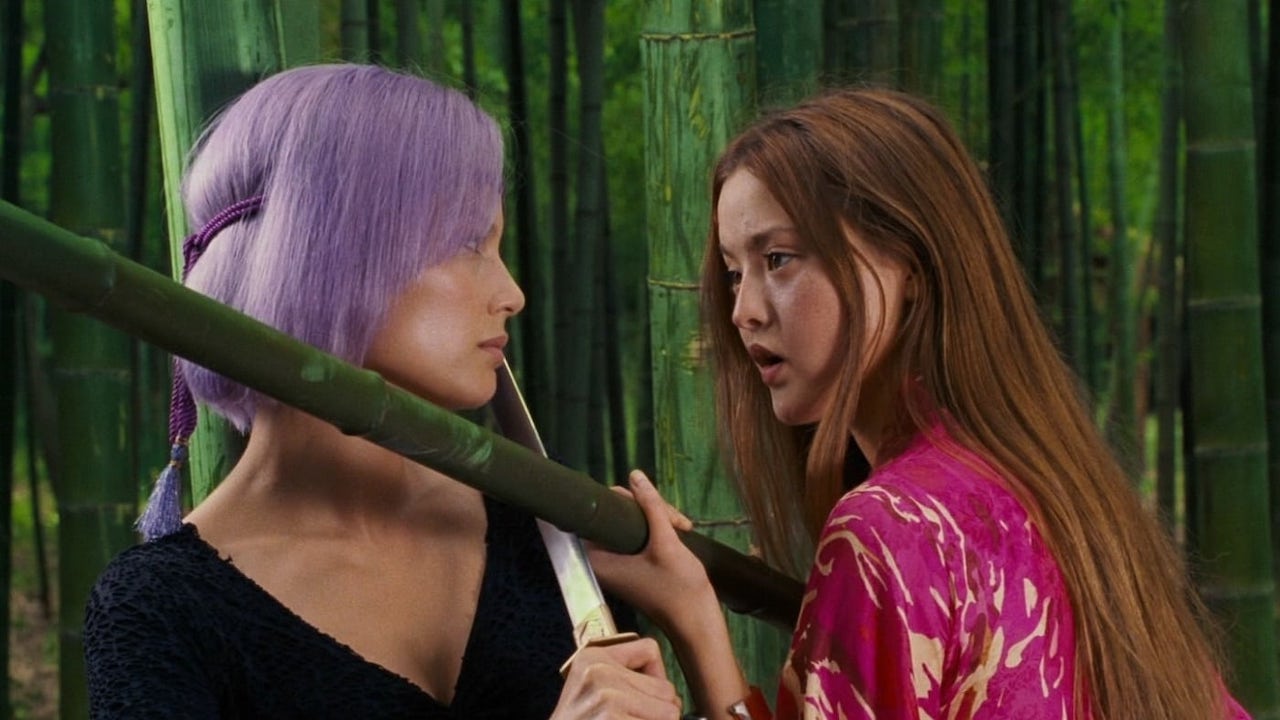
Alison Bechdel’s measure of what makes a film appropriately representative of the female experience has its limitations, of course—and DOA is a telling case study. It’s the kind of movie Russ Meyer might’ve put out if you locked him in a room with a Playstation One and a carton of Monster Energy drinks. And if he hadn’t died in 2004. But we’re living through an era where Hollywood blockbusters are desperately trying to convince us of their newfound understanding of gender equality, girlboss-ifying latex-clad superheroes, Disney princesses, and Ghostbusters with laboured attempts at third-wave feminist rhetoric.
Even former video game damsel-in-distress Princess Peach is a badass independent leader girly now. The line between celebration and exploitation of women’s stories in a still male-dominated film industry has always been paper-thin, and the harder studios try to address that uncomfortable truth, the more sweaty and unsuccessful their efforts appear. A new Marvel movie, with three far more nuanced, outspoken, and empowered female leads than the gals of DOA, recently suffered from the company’s worst opening weekend box office takings in history. To be fair, box office isn’t the whole story, and I haven’t seen the film, which has garnered mostly favourable reviews. But the numbers speak to a perceived cultural exhaustion with feminist-shaped corporate products.
Do we just throw in the towel, then, and return to this noughties era of lipgloss-slicked objectification? Hell no, brother. But it can be fun, I reckon, to look back and laugh at the game-to-movie pipeline of only two decades ago: mask-off sexploitation, meaningless button-mashing action, and Eric Roberts’ slimy little ponytail. Hell yeah, brother.

